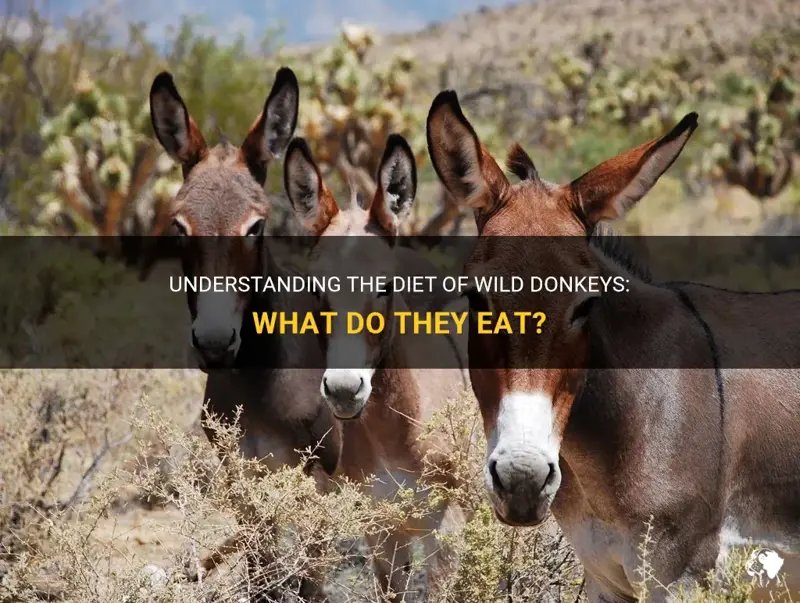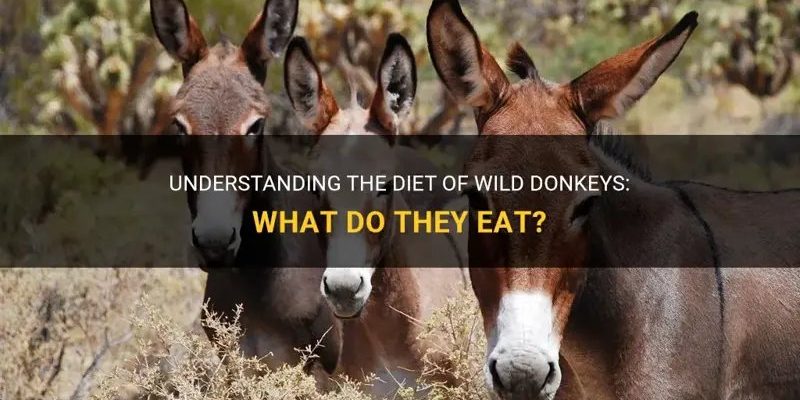
You might be wondering why it matters so much what donkeys eat. After all, they’re just munching machines, right? Well, here’s the thing: the right diet keeps them healthy, happy, and full of energy. Whether you’re a new donkey owner or just curious about these fascinating animals, understanding their feeding requirements is crucial. Think of it as being their personal nutritionist—ensuring they get everything they need to thrive.
Understanding Donkey Diet Basics
Donkeys are herbivores, which means they primarily eat plants. But don’t let the simple label fool you; their diet can be quite varied and needs to be balanced. In the wild, donkeys graze on grasses, shrubs, and other vegetation. However, domesticated donkeys often eat hay, grains, and specially formulated feeds designed to meet their nutritional needs.
A good donkey diet includes:
- Hay: This is a main staple in their diet, especially grass hay.
- Pasture: Fresh grass can be great, but it should be limited to avoid obesity.
- Grains: These should be given sparingly, mainly to working or pregnant donkeys.
- Mineral supplements: These ensure donkeys get the vitamins and minerals they might not get from hay alone.
Remember, donkeys have slower digestive systems than other animals, so they require high-fiber, low-protein foods. Providing too much sugary feed can lead to health issues like laminitis, so it’s important to stick to what they’ve evolved to eat.
Hay: The Core of a Donkey’s Diet
When it comes to donkey diets, hay is the king. Not just any hay, though—grass hay is often the best choice. High-quality grass hay provides essential fiber without too much sugar, making it easier for donkeys to digest and maintain a healthy weight.
In contrast, alfalfa hay is rich in protein and calcium, which can be great for young or nursing donkeys but is typically not recommended for adults. Too much protein can lead to obesity and other health problems. That’s why it’s key to choose hay that fits your donkey’s specific needs.
Take a moment to assess your hay. You want it to be clean, free of mold, and as fresh as possible. If it smells musty, it could be harmful to your donkey’s health. Also, the way you store hay matters. Keeping it dry and off the ground helps maintain its quality and prevents spoilage.
Pasture Access: Fresh and Green
While hay forms the backbone of a donkey’s diet, having access to fresh pasture can really enhance their nutrition. Grazing allows them to take in fresh nutrients and adds variety to their meals. However, you also need to be cautious with this.
Too much lush grass can lead to overeating and obesity, particularly in the spring when the grass is rich and full of sugar. This is when you should supervise their grazing or limit their time in the pasture. Using grazing muzzles or setting up a dry lot can help manage this.
On the flip side, if you live in an area where grass isn’t readily available or during winter months, make sure to provide adequate hay to compensate. Balance is key, and knowing your donkey’s individual needs will lead to a happier and healthier life for them.
Grains: Treats and Special Needs
You might think grains are essential for donkeys, but they actually should be a minor part of their diet. Grains like oats and barley can provide quick energy, making them suitable for working donkeys or those that are underweight. For most donkeys, especially those that are less active, a diet high in grains can lead to weight gain and other health problems.
If you do decide to feed grains, it’s crucial to introduce them slowly and monitor your donkey’s response. Overfeeding can lead to issues like colic or laminitis, so always err on the side of caution.
Think of grains as a special treat or a supplement rather than a staple. If your donkey needs a little boost, a handful of grains can do the trick, but keep it small and sparse. You might be surprised at how little they really need.
Mineral Supplements: Filling in the Gaps
While quality hay and some pasture do a lot of heavy lifting in a donkey’s diet, they might still lack certain essential nutrients. That’s where mineral supplements come in! These supplements can help address deficiencies and ensure your donkey stays healthy.
Common supplements include vitamins A, D, and E, as well as minerals like calcium and phosphorus. The specific needs can vary based on factors like age, weight, and activity level, so it’s smart to consult a vet to figure out the right balance for your donkey.
Make sure to choose a high-quality supplement that’s appropriate for donkeys. It’s also important to remember that more isn’t always better; follow the recommended dosages to avoid over-supplementation.
Water: The Most Important Nutrient
Let’s not forget about water when discussing what donkeys eat! Water is essential for digestion, circulation, and overall health. Donkeys should have constant access to fresh, clean water. They can drink a lot, especially if they eat dry hay, so keep their trough filled and check it regularly.
On hot days, it’s even more critical for them to stay hydrated. Consider adding electrolytes to their water if they’re particularly active or sweating a lot. Remember that dehydration can lead to serious problems, so being proactive about their hydration is key.
In colder months, make sure their water source doesn’t freeze over. Provide heated water buckets or check regularly to ensure they’re drinking enough.
Common Feeding Mistakes to Avoid
Now that we’ve covered the basics of a donkey’s diet, let’s talk about some common pitfalls that many new donkey owners fall into. It’s easy to make mistakes, especially when you’re trying to do your best.
One major mistake is overfeeding. Donkeys are great at conserving energy and can easily become overweight. Always monitor their body condition and adjust their food intake accordingly.
Another mistake is ignoring hay quality. Using low-quality hay or feeding moldy hay can lead to serious health issues. Always prioritize high-quality forage and check it before feeding.
Lastly, avoid sudden changes in diet. Donkeys have sensitive digestive systems, and introducing new foods too quickly can cause gastrointestinal upset. Always transition foods gradually, mixing them with their regular feed.
Feeding a donkey is all about balance. By focusing on quality hay, judicious use of grains, and proper supplements, you can craft a diet that keeps your donkey healthy and happy. Remember, they’re not just pets; they’re unique animals with specific needs that deserve a bit of care and attention.
Take some time to observe your donkey’s eating habits and consult with a vet when in doubt. With the right approach to their diet, you’ll have a vibrant, energetic, and healthy companion by your side. It’s all about understanding their needs, being attentive, and making small adjustments as necessary. Happy feeding!

